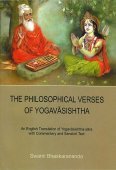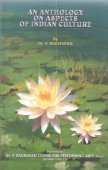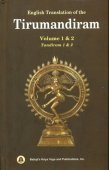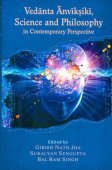Ramakrishna, Rāmakṛṣṇa: 7 definitions
Introduction:
Ramakrishna means something in Hinduism, Sanskrit, Jainism, Prakrit. If you want to know the exact meaning, history, etymology or English translation of this term then check out the descriptions on this page. Add your comment or reference to a book if you want to contribute to this summary article.
The Sanskrit term Rāmakṛṣṇa can be transliterated into English as Ramakrsna or Ramakrishna, using the IAST transliteration scheme (?).
Images (photo gallery)
In Hinduism
Vyakarana (Sanskrit grammar)
Source: Wikisource: A dictionary of Sanskrit grammarRāmakṛṣṇa (रामकृष्ण).—A grammarian who wrote a treatise on Karaka relations known by the name शाब्दबोधप्रक्रिया (śābdabodhaprakriyā).

Vyakarana (व्याकरण, vyākaraṇa) refers to Sanskrit grammar and represents one of the six additional sciences (vedanga) to be studied along with the Vedas. Vyakarana concerns itself with the rules of Sanskrit grammar and linguistic analysis in order to establish the correct context of words and sentences.
In Jainism
General definition (in Jainism)
Source: academia.edu: Tessitori Collection IRāmakṛṣṇa (रामकृष्ण) or “Ṛṣi Rāmakṛṣṇa” is the author of the Śāntināthastavana (dealing with various Jinas in Jain literature), which is included in the collection of manuscripts at the ‘Vincenzo Joppi’ library, collected by Luigi Pio Tessitori during his visit to Rajasthan between 1914 and 1919.—The Śāntināthastavana represents a devotional, descriptive and narrative hymn to the sixteenth Jina which was composed in VS 1867 (1810 CE). The author was probably a Sthānakavāsin or a lonkāgaccha monk but no further information could be traced so far. The last line as given in the Koba manuscripts seems to include the name of the place of composition.

Jainism is an Indian religion of Dharma whose doctrine revolves around harmlessness (ahimsa) towards every living being. The two major branches (Digambara and Svetambara) of Jainism stimulate self-control (or, shramana, ‘self-reliance’) and spiritual development through a path of peace for the soul to progess to the ultimate goal.
Languages of India and abroad
Sanskrit dictionary
Source: Cologne Digital Sanskrit Dictionaries: Cappeller Sanskrit-English DictionaryRāmakṛṣṇa (रामकृष्ण).—[masculine] a man’s name.
Source: Cologne Digital Sanskrit Dictionaries: Aufrecht Catalogus Catalogorum1) Rāmakṛṣṇa (रामकृष्ण) as mentioned in Aufrecht’s Catalogus Catalogorum:—father of Rādhāvallabha, grandfather of Kāśīrāma (Malamāsatattvaṭīkā). Oxf. 289^b. 291^a.
2) Rāmakṛṣṇa (रामकृष्ण):—son of Nārāyaṇa, father of Lakṣmana Bhaṭṭa (Ācārasāra). Io. 521.
3) Rāmakṛṣṇa (रामकृष्ण):—Advaitaviveka.
4) Rāmakṛṣṇa (रामकृष्ण):—pupil of Vidyāraṇya: Adhikaraṇakaumudī. Pañcadaśīṭīkā.
5) Rāmakṛṣṇa (रामकृष्ण):—Ākhyātavādaṭippaṃ.
6) Rāmakṛṣṇa (रामकृष्ण):—Agamakaumudī [tantric] Āgamacandrikā [tantric] written in 1726.
7) Rāmakṛṣṇa (रामकृष्ण):—Kāvyaprakāśabhāvārtha.
8) Rāmakṛṣṇa (रामकृष्ण):—Kuṇḍamaṇḍapasaṃgraha.
9) Rāmakṛṣṇa (रामकृष्ण):—Tarkacandrikā.
10) Rāmakṛṣṇa (रामकृष्ण):—Devīmāhātmyaṭīkāsaṃgraha.
11) Rāmakṛṣṇa (रामकृष्ण):—Nāmaliṅgākhyā Kaumudī.
12) Rāmakṛṣṇa (रामकृष्ण):—Nyāyadarpaṇa.
13) Rāmakṛṣṇa (रामकृष्ण):—Pīṭhacintāmaṇi [tantric]
14) Rāmakṛṣṇa (रामकृष्ण):—Puṣpāñjalistotra.
15) Rāmakṛṣṇa (रामकृष्ण):—a pupil of Ahobala Śāstrin or Bodhānandaghana: Prakāśikā on the Mīmāṃsāsūtra.
16) Rāmakṛṣṇa (रामकृष्ण):—Prāyaścittaprakaraṇa. Śrāddhaprabhā.
17) Rāmakṛṣṇa (रामकृष्ण):—Bhagavadgītāṭikā.
18) Rāmakṛṣṇa (रामकृष्ण):—Bhāgavatakaumudī. Mantrakaumudī.
19) Rāmakṛṣṇa (रामकृष्ण):—Bhārgavacampu.
20) Rāmakṛṣṇa (रामकृष्ण):—Mahābhārataprakāśinī Virodhabhañjinī. The
—[commentary] includes the Harivaṃśa.
21) Rāmakṛṣṇa (रामकृष्ण):—Mudrārṇava [tantric]
22) Rāmakṛṣṇa (रामकृष्ण):—Līlāvatī Tattvacintāmaṇidīdhitiṭīkā. This is Bühler's Adhidīdhitibhāvārtha.
23) Rāmakṛṣṇa (रामकृष्ण):—Vijayavilāsa [dharma]
24) Rāmakṛṣṇa (रामकृष्ण):—Vivekakaumudī [dharma] Vṛṣotsargakaumudī. Vratodyāpanakaumudī.
25) Rāmakṛṣṇa (रामकृष्ण):—Vaidyaratnākarabhāṣya.
26) Rāmakṛṣṇa (रामकृष्ण):—Śaṅkarābhyudaya kāvya.
27) Rāmakṛṣṇa (रामकृष्ण):—Śarabhārcanapaddhati.
28) Rāmakṛṣṇa (रामकृष्ण):—Sāpiṇḍyanirṇaya.
29) Rāmakṛṣṇa (रामकृष्ण):—
—[commentary] on the Tripaśnādhikāra of the Siddhantaśiromaṇi.
30) Rāmakṛṣṇa (रामकृष्ण):—son of Koṇera: Saṃskāragaṇapati Pāraskaragṛhyasūtravivaraṇa.
31) Rāmakṛṣṇa (रामकृष्ण):—son of Koṇḍabhaṭṭa, grandson of Prayāgabhaṭṭa: Śrāddhagaṇapati Śrāddhasaṃgraha.
32) Rāmakṛṣṇa (रामकृष्ण):—son of Gopālācārya, grandson of Śivanātha: Durgāvilāsamahākāvya.
33) Rāmakṛṣṇa (रामकृष्ण):—called also kākārāma son of Dilārāma, wrote the
—[commentary] on Jānakīcaraṇacāmara in 1848. Kāvyamālā 1890.
34) Rāmakṛṣṇa (रामकृष्ण):—son of Dharmarāja Adhvarīndra: Nyāyaśikhāmaṇi, a
—[commentary] on Rucidatta's Tattvacintāmaṇiprakāśa. Vedāntaśikhāmaṇi, a
—[commentary] on his father’s Vedāntaparibhāṣā. Vedāntasāraṭīkā.
35) Rāmakṛṣṇa (रामकृष्ण):—son of Mudgala: Rasarājaśaṅkara med.
36) Rāmakṛṣṇa (रामकृष्ण):—son of Lakṣmaṇa, grandson of Nṛsiṃha: Bījagaṇitaprabodha.
37) Rāmakṛṣṇa (रामकृष्ण):—son of Śrīpati: Bhagavatīpadyapuṣpāñjali.
38) Rāmakṛṣṇa (रामकृष्ण):—the author of Bhārgavacampū was a son of Tryambaka.
39) Rāmakṛṣṇa (रामकृष्ण):—father of Dinakara and Lakṣmaṇa (Naiṣadhīyaṭīkā).
40) Rāmakṛṣṇa (रामकृष्ण):—father of Vaidyanātha Gāḍagila (Tarkacandrikā).
41) Rāmakṛṣṇa (रामकृष्ण):—astronomer. Quoted by Divākara in Prauḍhamanoramā.
42) Rāmakṛṣṇa (रामकृष्ण):—Utsargopākarmaprayoga.
43) Rāmakṛṣṇa (रामकृष्ण):—Nañviveka.
44) Rāmakṛṣṇa (रामकृष्ण):—Bhagavatīprabandhastotra.
45) Rāmakṛṣṇa (रामकृष्ण):—Viśiṣṭādvaitabhañjana. Viśiṣṭādvaitasaṃgraha.
46) Rāmakṛṣṇa (रामकृष्ण):—Śrāddhādivivekakaumudī.
47) Rāmakṛṣṇa (रामकृष्ण):—son of Govardhana: Gaṇapāṭha.
48) Rāmakṛṣṇa (रामकृष्ण):—called also Haridāsa, son of Tryambaka: Bhārgavacampū.
49) Rāmakṛṣṇa (रामकृष्ण):—Darśapūrṇamāseṣṭipaddhati Av.
50) Rāmakṛṣṇa (रामकृष्ण):—Bhagavatsiddhāntavijayavāda.
51) Rāmakṛṣṇa (रामकृष्ण):—son of Gaṅgādhara, grandson of Rāmacandra, completed his father’s Kātyāyanaśulbasūtrabhāṣya. Ulwar 151. Extr. 47.
52) Rāmakṛṣṇa (रामकृष्ण):—son of Dāmodara: Agnihotraprāyaścittapaddhati. Viśvajidatirātrapaddhati. Sadasyapaddhati. Sarvatomukhapaddhati. Sarvaviṣṭutiprayoga.
53) Rāmakṛṣṇa (रामकृष्ण):—Amarakośaṭīkā.
54) Rāmakṛṣṇa (रामकृष्ण):—Devīmāhātmyaṭīkā.
55) Rāmakṛṣṇa (रामकृष्ण):—Prakāśasaptatisūtrāṇi.
56) Rāmakṛṣṇa (रामकृष्ण):—Śarabhārcāpārijāta.
57) Rāmakṛṣṇa (रामकृष्ण):—son of Dāmodara, wrote the following tracts belonging to the Vs. Atirātrapaddhati. Aptoryāmapaddhati. Ukthapaddhati. Audgātrapaddhati. Jyotiṣṭomapaddhati. Vājapeyapaddhati. Ṣoḍaśīpaddhati.
58) Rāmakṛṣṇa (रामकृष्ण):—son of Gaurī and Nīlakaṇṭha: Rugviniścayaṭīkā.
Source: Cologne Digital Sanskrit Dictionaries: Monier-Williams Sanskrit-English DictionaryRāmakṛṣṇa (रामकृष्ण):—[=rāma-kṛṣṇa] [from rāma] m. Name of various authors and other men (also with ācārya, dīkṣita, daiva-jña, paṇḍita, bhaṭṭa, bhaṭṭācārya, bhāva, miśra, vaidyarāja, śeṣa etc.), [Catalogue(s)]
[Sanskrit to German]
Sanskrit, also spelled संस्कृतम् (saṃskṛtam), is an ancient language of India commonly seen as the grandmother of the Indo-European language family (even English!). Closely allied with Prakrit and Pali, Sanskrit is more exhaustive in both grammar and terms and has the most extensive collection of literature in the world, greatly surpassing its sister-languages Greek and Latin.
See also (Relevant definitions)
Partial matches: Krishna, Rama.
Starts with (+11): Ramakrishna acarya, Ramakrishna bhatta, Ramakrishna bhattacarya, Ramakrishna bhattacarya cakravartin, Ramakrishna daivajna, Ramakrishna dikshita, Ramakrishna dikshita nahnabhai, Ramakrishna kadamba, Ramakrishna kavi, Ramakrishna mishra, Ramakrishna pandita, Ramakrishna sharman, Ramakrishna suri, Ramakrishna tarkapancanana, Ramakrishna vaidyaraja, Ramakrishna yajvan, Ramakrishnabhatta, Ramakrishnabhattacarya, Ramakrishnabhyudaya, Ramakrishnadeva.
Ends with: Bhatta ramakrishna, Bhava ramakrishna, Bhavaramakrishna, Kadamba ramakrishna, Shesha ramakrishna.
Full-text (+325): Ramakrishnadikshitiya, Shabdabodhaprakriya, Nahnabhai, Siddhantakaumudivadartha, Vaiyakaranasiddhantaratnakara, Ramakrishniya, Chandogahnikapaddhati, Panditashiromani, Ramakrishnakavya, Ramakrishnapaddhati, Ramakrishnasamvada, Ramakrishnastotra, Ramakrishnadeva, Dashavtar, Ramakrishnavilomakavya, Shabdaprakriya, Bhavaramakrishna, Maniramakrishnadikshitiya, Ramakrishnanandatirtha, Ramakrishna dikshita.
Relevant text
Search found 89 books and stories containing Ramakrishna, Rāmakṛṣṇa, Ramakrsna, Rama-krishna, Rāma-kṛṣṇa, Rama-krsna; (plurals include: Ramakrishnas, Rāmakṛṣṇas, Ramakrsnas, krishnas, kṛṣṇas, krsnas). You can also click to the full overview containing English textual excerpts. Below are direct links for the most relevant articles:
Sri Rama Krishna Jnana and Vijnana < [Jan. – Mar. 1991 & Apr. – Jun. 1991]
Three Eminent Andhra Educationists < [October-December 1942]
Ramakrishna’s Message for the Modern Age < [January – March, 1987]
Preceptors of Advaita (by T. M. P. Mahadevan)
Social philosophy of Swami Vivekananda (by Baruah Debajit)
Chapter 1.0 - Introduction (Swami Vivekananda’s life and history)
Chapter 1.1 - Influences that Shaped Swami Vivekananda’s Philosophy
Amarakoshodghatana of Kshirasvamin (study) (by A. Yamuna Devi)
Commentaries on Amarakośa < [Chapter 1 - Kośa Literature–A Brief Survey]
Need for the present study < [Chapter 1 - Kośa Literature–A Brief Survey]
Amaravati Art in the Context of Andhra Archaeology (by Sreyashi Ray chowdhuri)
The flourishing agriculture and prosperity in Amarāvatī (Dhānyakaṭaka) < [Chapter 4 - Survival of Amarāvatī in the Context of Andhra Art]
Region Beyond The Coastal Lines (7): Koṭaliṅgala < [Chapter 2 - Amarāvatī and other Archaeological Sites of Ancient Andhra Pradesh]
Region Beyond The Coastal Lines (8): Satanikoṭa < [Chapter 2 - Amarāvatī and other Archaeological Sites of Ancient Andhra Pradesh]
Jainism and Patanjali Yoga (Comparative Study) (by Deepak bagadia)
Part 4.6 - Methods of Purification of Mind (citta-prasadana) < [Chapter 2 - Yoga philosophy and practices]
Part 4.4 - Yogic techniques for control of Vrttis (5): Isvara-pranidhana < [Chapter 2 - Yoga philosophy and practices]
Part 4.7.1 - Klesas (Afflictions) < [Chapter 2 - Yoga philosophy and practices]
Related products
(+3 more products available)






